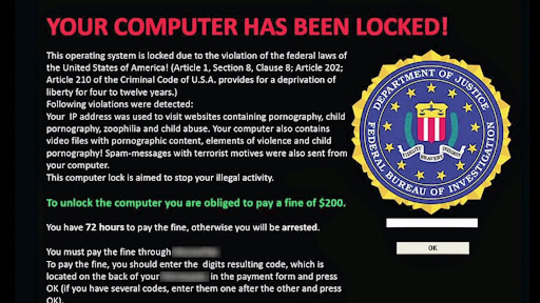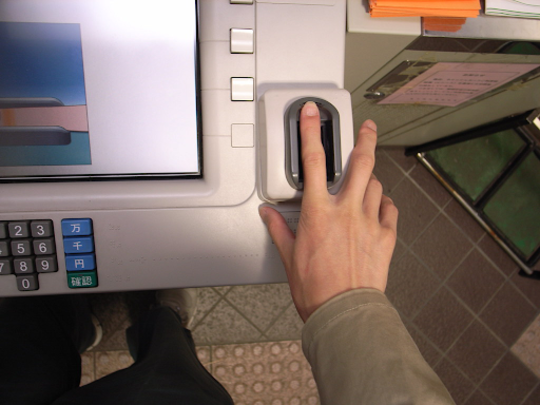Critical Cybersecurity Tips for Marketers in 2020
If you're a marketer and feeling a little left out of the cybersecurity equation, you're not alone. Only a paltry 22% of companies include a CMO on their incident-response team in the event of a data breach. Considering the capacity for a company's marketing department to inadvertently create a breach through poor data handling habits or ignorance of good cybersecurity habits, you'd think including the CMO in security matters would be a higher priority.
Maybe it's time for marketers to educate themselves. If you agree, you're in the right spot. By the time you reach the end of this article, you probably won't be a security expert but should know enough about overall cyber-safety and data protection to at least not be the one to blame if there is a security-related incident.
Here are a marketer's best tips for 2020.
Consumer Data is a Bigger Deal than Ever
Whether offline or online, most marketers collect digital customer data of some sort. It's through the study of this data that marketing plans and brand-building strategies are conceived by profiling, analyzing, and targeting. In recent years, data collection has become the tool that primes the pump more than ever.
Simultaneously, hackers have realized it's more effective to break into a company network and database and rip off thousands (or millions) of records at once than to mess with hacking individual devices one by one.
In response to this tsunami of hacker interest, there have been a couple of sweeping regulations enacted that define how personal data should be collected, handled, stored, and deleted upon request. The first regulation came into effect in 2018 and is called the General Data Protection Regulation (GDPR). The second is the California Consumer Privacy Act (CCPA). Every marketer should read up on these and make sure that staff knows how to handle data properly.
While it's the IT team who should put protections in place, smart marketers need to know the rules of the game and how it's played. If you slip up, the fines can be huge, especially where the GDPR is concerned. Additionally, building a good online reputation isn't easy or quick. A company rep that has been years in the making can be wiped away by a single, careless click that inadvertently invites a hacker to the party.
Avoid Mindless Clicking
True or false. Phishing can't happen to you. An unsettling number of marketers are likely to answer true and they'd be right. It can't happen to them - until it does - and if you find yourself fast-clicking your way through email responses, you're setting your company's network up for a big, fat malware invasion that could yield all kinds of terrible consequences ranging from straight out data theft to a ransomware demand that holds your network hostage until a Bitcoin payment is made.
Something that isn't talked about enough is the cost of a data breach. As of 2019, the average loss in the United States as a result of a breach is $8.19 million. Have you taken that into account when you sit down to calculate profit projections for the year? By the time you add up down time, remediation costs, lost business, and regulatory fines, you're looking at a total that can flatout break a company.
The solution isn't hard and doesn't require a high IQ. Slow down, inspect links, and don't click on anything from an unknown sender.
It's a Mobile World Now
It wasn't so long ago that the vast majority of a marketer's daily work was done on a desktop (okay, this was a REALLY long time ago) or laptop. While a good number of you still tap the keys on the latter, the growing sophistication of the mobile experience allows more work than ever to be done on the small screen.
Think hackers have noticed this giant move to mobile? If you're undecided, let me help. The answer is yes. Now, more than ever, you must be a proactive security fiend because - just like that - a bad guy could slip into the company network through your cell phone.
The usual advice applies in 2020, with a few twists. Strong passwords are mandatory but consider deploying multi-factor authentication or biometric technology instead of the old-fashioned password. Also, keep your Bluetooth turned off and don't automatically connect to public wi-fi.
All Connections Should be Secured
I realize that most of you will probably ignore this advice since it's been handed out so often by cybersecurity experts the world over, but here goes anyway. No matter what device you're using, don't access the internet through an unsecured connection, even for short periods of time.
The thing is, hackers don't have to be poised to pounce to notice that you're vulnerable. They've invented smart robots that scan the internet constantly and will likely take notice in seconds when they find an unprotected session in progress. These smartbots will dump malware on you without a hacker having to lift a finger and then go report back to their master where they can find the careless one.
The main thing to remember is to only use secured connections. If you decide to ignore that advice, I'm hoping you have a virtual private network (VPN) enabled on your device because it might save you from a data breach or worse.
Make Cybersecurity a Team Priority
This might be the most important tip of all. While there are plenty of non-security related mistakes a marketing department can make, a lackadaisical view of cybersecurity can quickly turn into the most dangerous one of all. Unless the entire marketing department buys into the critical nature of cybersecurity and acknowledges that it's not just something the IT team should take care of, expect a disaster sooner rather than later. Today's reality is that marketers work with data as much or more than any other team. Hackers know this. If you stack a nonchalant security attitude on top of endless opportunity, it's going to be a data bloodbath.
The best tactic here is for the CMO to take security seriously. Really, REALLY seriously. Make the importance of this a part of the marketing department's DNA. Enforce compliance and deliver real consequences for anyone who doesn't toe the line. This is not the time for a touchy-feely "just try your best" attitude. A single severe data breach is likely to put an SMB out of business in 10% of the cases.
You probably don't want to roll those dice.
Slicing the Financial Pie
The marketing you engage in likely has a large reach. That means, with a click of the mouse, you could mindlessly send out a malware link in a promotional newsletter to thousands of people. Think that will get you much repeat business? Consumer spending accounts for 68% of the US economy but don't take for granted that it will always feel generous towards a company that proves it handles personal data poorly.
Final Thoughts
With cyber-attacks growing more numerous with each passing year, it's more critical than ever that a company's entire resources be brought to bear on repelling them. While technology and tactics will always be high on the list of effective cybersecurity strategies, it's never too late for the marketing department to roll up its sleeves and pitch in to help. The choice for marketers is to become security-savvy or risk-taking up space in the unemployment line.
This guest article was written by Nahla Davies, a software developer who loves writing software to build great products and help businesses succeed with their goals. Before devoting her work fulltime to technical writing, Nahla managed - among other intriguing things - to serve as a lead programmer at an Inc. 5,000 experiential branding organization whose clients include Samsung, Time Warner, Netflix, and Sony.




